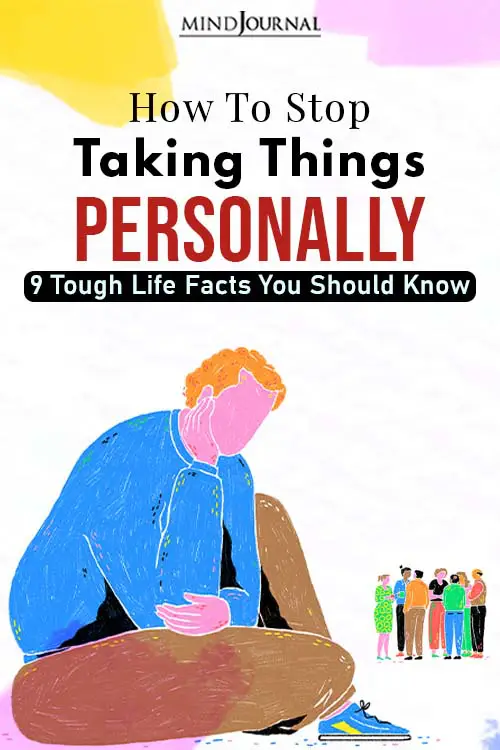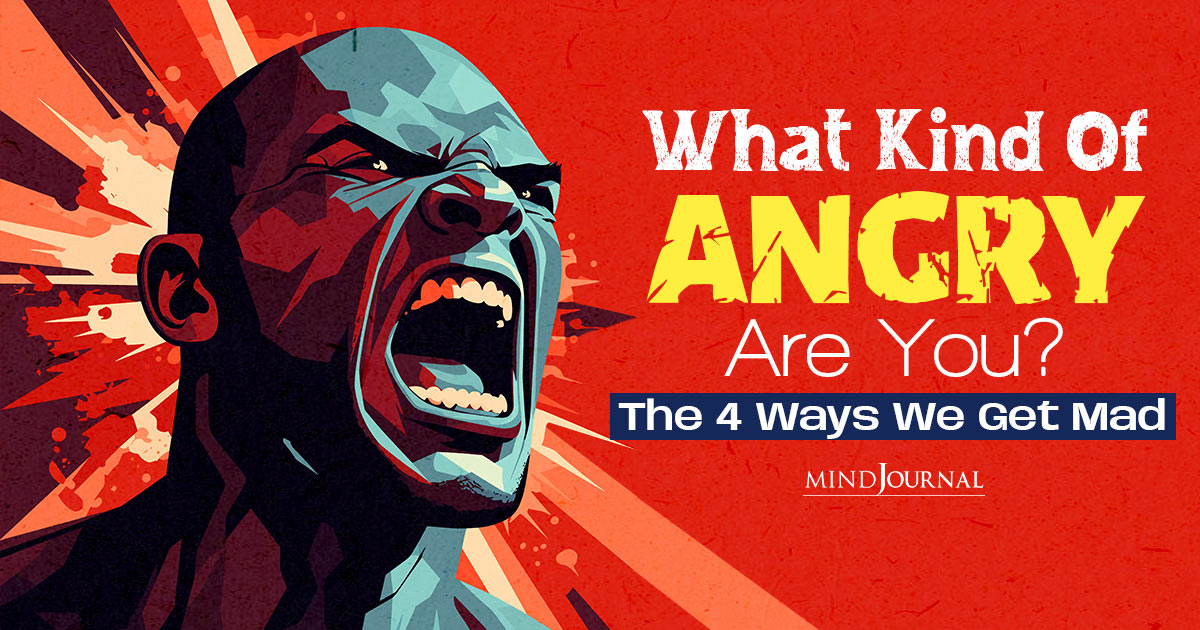It’s human nature to relate to other’s comments with their surroundings. When someone is projecting their feelings, it can be very hard not to take it personally because it can feel as though it is about us. Do you have a habit of taking things personally?
Learning to depersonalize what happens to you will reshape your world and make you much happier.
Personal importance, or taking things personally,
is the maximum expression of selfishness because
we make the assumption that everything is about ‘me’.
— Don Miguel Ruiz, The Four Agreements
In today’s world, I see two “mental plagues” taking a massive emotional toll on multitudes of people. The first plague is ‘taking everything personally’, the second, loneliness.’
Taking things personally can result in conflict
‘Taking things personally’ can result in conflict, pushing others away and isolating ourselves. ‘Loneliness’ can result in stress, depression and even death. Ironically, taking things personally can lead to loneliness.
Both plagues have a cure. I call this cure ‘mental medication’ coupled with belief, curiosity and the willingness to upgrade your self-awareness.
The foundation of our mental growth begins with accepting that we have the ‘choice’ to rise above being a victim of our own thinking.
This shift of perspective is not easy. However, the payoff for the dis-ease is greater than you can imagine.
Read 17 Daily Choices You Can Make To Choose Happiness In Life
The cure begins with setting aside the need to be ‘right’.
In our early years, we get offended by what we believe people are thinking about us.
In our middle years, we hopefully learn not to care.
In our later years, we discover that
people weren’t really thinking about us anyway. — Anonymous
‘Taking things personally,’ while it may seem normal and natural, is anything but. When the result of choosing to take things personally creates stress and results in conflict, you are experiencing the world through the lens of FEAR. You won’t realize this at the time, but you will later.
How to stop taking things personally?
Let me lay the groundwork by presenting you with what I will be bold enough to label ‘Tough Life Facts.’
‘Tough life facts’ are neither meant to challenge your intelligence nor trigger your defensiveness. I present them simply to provide the context or a frame to support a shift in your thinking. If they make you uncomfortable, that’s perfectly natural. Your willingness to embrace them is paramount for you to grow emotionally, let go of fear and increase your moment-to-moment joy.
TOUGH LIFE FACT 1:
There are more than seven and a half billion people on this planet and from their point of view, their perspective, they are ‘right’ in what they believe. If you don’t believe it, ask them.
In today’s chaotic environment, you don’t have to go far before someone takes issue with what you say, becomes defensive, aggressive or determined to change your beliefs.
Perhaps this seems a bit overwhelming. Nevertheless, you want to consider what this means in terms of communication. Also, ponder the effect you have on others.
The most successful individuals I have met, interviewed or coached realize the enormous impact their communication has on others as well as their own mental health. They have learned and continue to learn the mental tools to provide a kind of ‘shield’ that keeps them calm, centered and protects them from taking things personally.
Watch out Frederik Imbo explaining how not to take things personally.
TOUGH LIFE FACT 2:
You are not affected emotionally by what takes place around you but by your interpretation of what happens, based on what you believe to be true.
Your beliefs are just beliefs. They are programmed/imprinted, suggested, taught or witnessed before the age of six. Your version of reality is simply based on your previous experiences and conditioning.
SUGGESTION:
You can shift the way you see the world by questioning your beliefs. Consider:
“What makes me feel disrespected?”
“If someone doesn’t return my phone call, email or greeting, are they being disrespectful?”
“Do I honestly feel worthy of someone’s respect?”
“If people think I’m not worthy of respect, then do they think I’m worthless?”
Reject the answers that are not based on reality. You can learn to see the world as it is, not how you want it to be.
Read 10 Powerful Confucius Quotes That Will Change Your Perspective On Life
TOUGH LIFE FACT 3:
Emotions do not have to rule your actions. Just because you experience negative emotions, such as anger, defensiveness, fear of rejection, doesn’t trap you into acting on them.
I explore this in-depth in my book, IMAGINE THAT! Igniting Your Brain for Creativity and Peak Performance. Here are the highlights.
Most people never think about, examine, or learn from their feelings. Nor do they realize that what and how they think creates the very feelings they don’t want to examine. And, because they have never examined the nature of their feelings, they mistakenly and often destructively let those feelings determine their behavior.
We need to get rid of the unrealistic and outdated notion that feelings determine what we do.
They do not. When we are freed from that myth, we discover that unpleasant feelings
are not simply troublesome, they are informative.
— David K. Reynolds, A Handbook for Constructive living
Feelings not only assist you in knowing yourself but also give you the opportunity to be authentic and connect deeply with others. Negative feelings are often the signpost for you to learn about and resolve old issues.
Expressing your negativity to others can be life-diminishing, hurtful, or just plain boring. Unless you are with a coach, therapist, or someone who is willing to listen, don’t do it! Your fear-based feelings do not have to determine your actions—ever. In and of themselves, feelings are never the problem. They are a natural part of being human. Learn from them. Use them. Refuse to let them use you.
Because you have very little control over your feelings, you are not responsible for the way you feel. Conversely, because you do have control over your actions, you are both responsible and accountable for your actions and the results of those actions. You do not have to let your actions be dictated by your feelings and, regardless of how you feel, you can always choose what action to take or not take.
SUGGESTION:
Learn to be aware of and accept your feelings. Then use them as a source of information for your growth.
Read Brené Brown’s Powerful Quotes on Accepting Yourself Whole-Heartedly
TOUGH LIFE FACT 4:
When you take things personally, you unconsciously agree with what is said.
Once you agree, you have trapped yourself by your assumption that everything is about you. You have let your ego rule your mind. You have fallen into the trap of ‘selfishness.’
SUGGESTION:
Realize that what people do and say is because of themselves, their programming, their conditioning, their beliefs.
Everyone and I mean EVERYONE lives in their own reality. When you take it personally, you erroneously assume that the other person lives in your world and has your beliefs. When you take it personally, you have the need to be right and make the other person wrong.
Read 11 Promises You Should Make to Yourself and Keep
QUESTION:
Do you want to be ‘right’ or, do you ‘want to be happy’? Any suffering or blame you experience by feeling threatened by someone else’s opinion is based on your ego. You are always at choice. Give it a break.
People will love you. People will hate you. And
none of it will have anything to do with you. — Abraham Hicks
TOUGH LIFE FACT 5:
It takes true grit to challenge your assumptions about what you believe to be true.
You are taking things personally because on some level you agree with whatever was said. As soon as you agree, the poison spreads through you, and you are trapped in your illusion of personal importance and selfishness. The reality is that everything is NOT about you.
Your beliefs form the perceptual lens through which you look, judge and make choices. The only way to see new possibilities is to challenge your assumptions as to what you believe to be true and shift your thinking. This can be scary, but it is necessary.
Become an artist of possibility, refuse to accept the status quo. Be willing to step outside your comfort zone, take risks, challenge your assumptions, recognize and breakthrough fear and, imagine multiple possible futures.
SUGGESTION:
Seek clarification before jumping to conclusions. It’s easy to assign dark motives to others. Give others the benefit of the doubt. Seek information without judgment.
TOUGH LIFE FACT 6:
When you fall prey to taking things personally, you are giving your power away.
When you let other people distress you, you are allowing them to dictate how you feel. You are drinking the poison they are giving you.
Read Dissolving Ego: 4 Signs Your Ego Is Disintegrating
SUGGESTION:
STOP IT!
If you act through love instead of fear and accept yourself, you WILL attract people who will accept and love you for the way you are.
TOUGH LIFE FACT 7:
Be comfortable with discomfort.
EVERYONE resists external or internal change that takes them out of their comfort zone. Growth in all areas requires you to do so.
Neuroscience tells us that our primitive brain is designed to notice the negative before the positive. From years of personal coaching, I have concluded that many people waste 90 percent of their energy in a fruitless attempt to change the unchangeable.
Many who truly desire to transform their lives are often unable or unwilling to acknowledge what cannot be changed. This is not only a waste of time, but it is frustrating and exhausting.
SUGGESTION:
You can avoid this trap by learning to identify what can be changed and let go of the rest—quickly.
Feel the fear and do it anyway.
Nobody can hurt me without my permission. — Mahatma Gandhi
Read Ways To Let Go OF Your Fears, Insecurities, and Negativities For A Fulfilling Life
TOUGH LIFE FACT 8:
If you obsess on what others say, you have way too much free time on your hands.
If you obsess, you are filling a void better filled with some productive activity. Refuse to waste your time. Fill your time with family or friends. Choose to do activities that bring you joy and require focus. i.e. golf, tennis, writing, painting, museums, gardening, reading.
TOUGH LIFE FACT 9:
NO ONE is going to help you if you don’t help yourself.
There are tools you can use when you fall into the trap of taking things personally. They are time-sensitive. In other words, use them when you feel threatened to reframe your thinking.
Read 5 Ways To Keep Yourself Calm During A Triggering Event
SUGGESTIONS:
1. BREATHE IMMEDIATELY!
Remember that if you respond negatively to taking things personally, you are falling in the trap of fear. Fear makes your breathing shallow which, at the moment, exacerbates the fear.
The moment you are aware, take a few deep breaths before you respond. This will help you to calm your mind and body. Therefore, you are less likely to have a knee-jerk reaction.
2. GET CLARIFICATION.
Refuse to get dragged down in the muck of your anger by jumping to conclusions. If possible, ask questions to help you clarify by what the other person meant. And if you can, explain instead of blame. Explain how what you just heard makes you feel.
3. STOP COMPLAINING.
Complaining to others about how someone else made you feel is like dumping a bucket of poop on the person at the receiving end. Plus, it triggers you to replay your grievance.
4. REFUSE TO GO IN THE GUTTER.
Take the high road. You may feel good by lashing out at the moment, but you will pay the price with guilt or regret. Let it wash off you. Make an agreement not to dwell on it.
5. YOU CAN’T PLEASE EVERYONE.
Accept it: Like it or not, there will always be people who will dislike you and get off by criticizing you.
Philanthropist, statesman, and political consultant, Bernard M. Baruch wrote: “Be who you are and say what you feel, because those who mind don’t matter, and those who matter don’t mind.’
6. DUMP TOXIC PEOPLE.
Distance yourself from those you consider life-diminishing. If you choose to justify yourself with guilt or fear about letting toxic people go, that is your choice. Then, once again, don’t complain.
Read 10 Strategies To Help You Deal With The Difficult People In Your Life
7. REALIZE THAT EVERYTHING IS NOT ABOUT YOU! Enough said.
When you let it get personal,
the cost becomes personal too.
You’re opening your own heart here.
You sure you want to do that?
― Michael Marshall Smith, Stories: All-New Tales
How do you stop taking things personally? Share with us by commenting below.
Written by James Mapes
Originally appeared in The Goodmen Project










Leave a Reply
You must be logged in to post a comment.